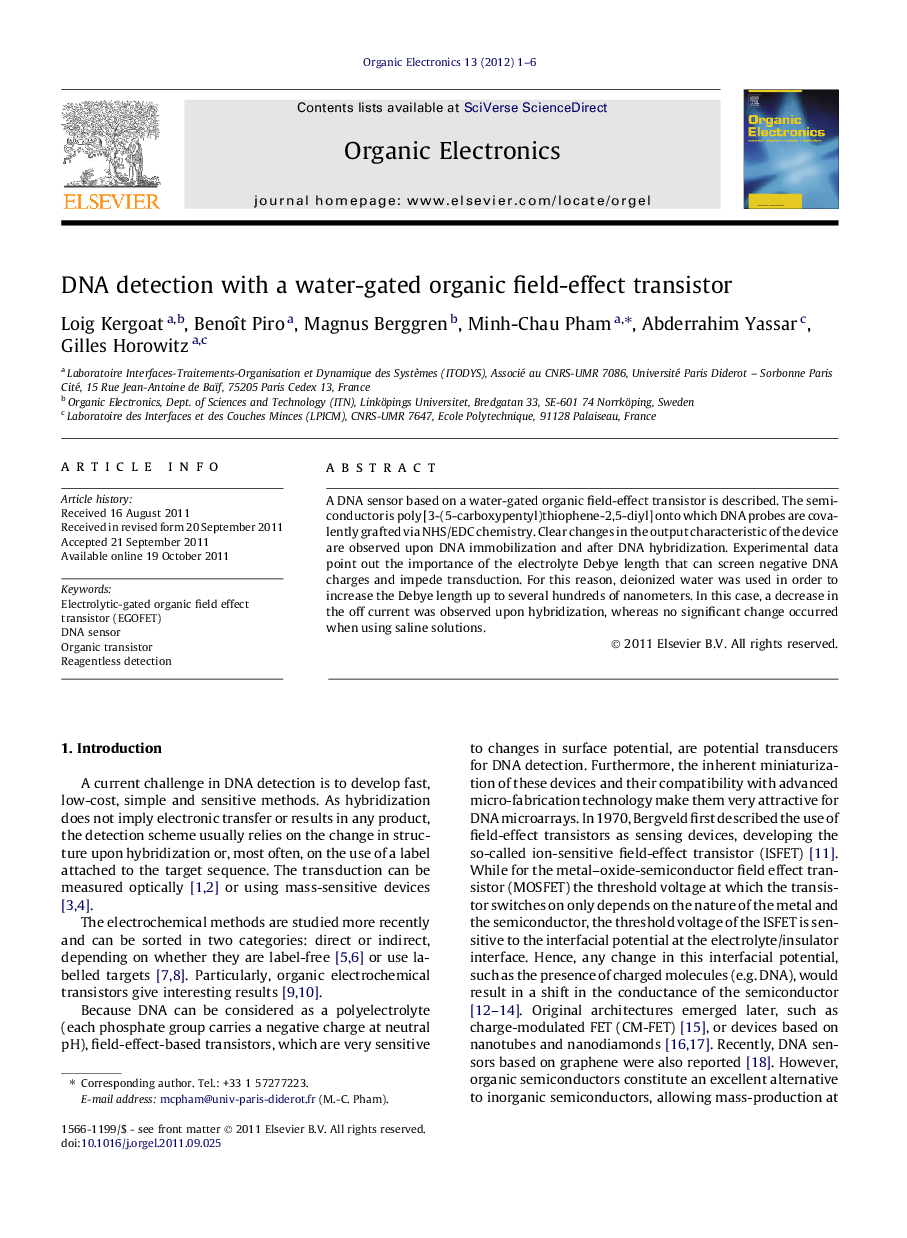| Article ID | Journal | Published Year | Pages | File Type |
|---|---|---|---|---|
| 1264615 | Organic Electronics | 2012 | 6 Pages |
A DNA sensor based on a water-gated organic field-effect transistor is described. The semiconductor is poly [3-(5-carboxypentyl)thiophene-2,5-diyl] onto which DNA probes are covalently grafted via NHS/EDC chemistry. Clear changes in the output characteristic of the device are observed upon DNA immobilization and after DNA hybridization. Experimental data point out the importance of the electrolyte Debye length that can screen negative DNA charges and impede transduction. For this reason, deionized water was used in order to increase the Debye length up to several hundreds of nanometers. In this case, a decrease in the off current was observed upon hybridization, whereas no significant change occurred when using saline solutions.
Graphical abstractFigure optionsDownload full-size imageDownload as PowerPoint slideHighlights► A DNA sensor based on a water-gated OFET. ► A water-gated OFET is based on pure water as the dielectric. ► It offers very high electric field, allowing operation below 1 V. ► Output characteristics change upon DNA hybridization. ► Electrolyte Debye length is a crucial parameter.
